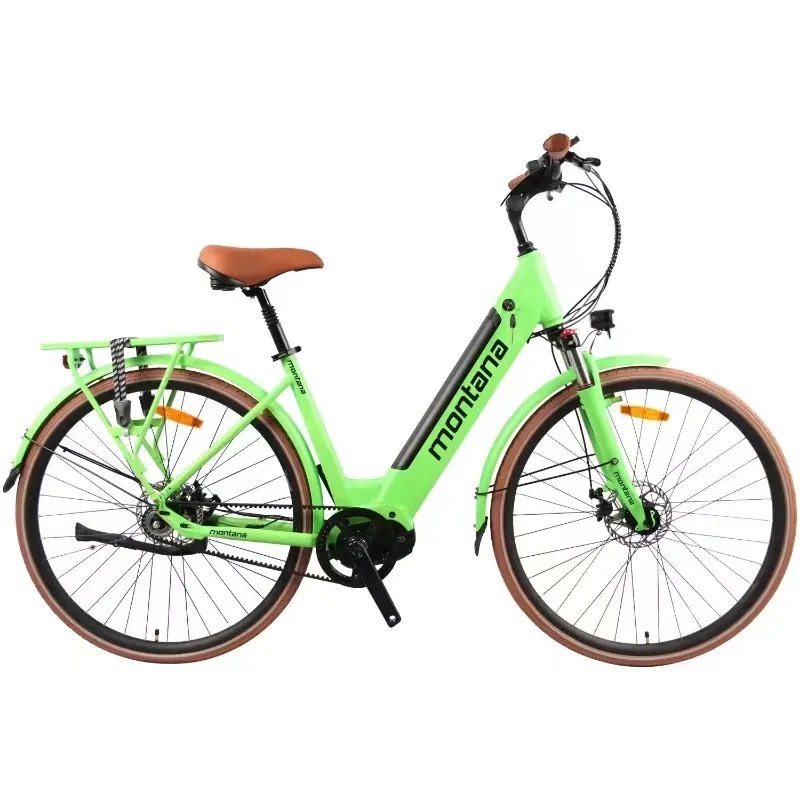9 月 . 25, 2024 23:38 Back to list
Choosing the Right Size for Your Mountain Bike for Optimal Comfort and Performance
Understanding Mountain Bike Sizing A Guide to Finding the Perfect Fit
When it comes to mountain biking, one of the most crucial factors that can influence your performance and enjoyment is the size of your bike. Proper mountain bike sizing can affect everything from comfort and efficiency to control and safety on the trails. Here’s a guide to help you navigate the often-confusing world of bike sizing.
Why Is Sizing Important?
Choosing the right size mountain bike is important for several reasons. A bike that fits well allows for better handling, improved efficiency, and reduced fatigue over long rides. Improper sizing can lead to discomfort and can even increase the risk of injury. Whether you’re a seasoned rider or a beginner, understanding how to select the right size is key to enhancing your riding experience.
Measuring Yourself
Before you begin shopping for a mountain bike, it's essential to know your measurements. The most common measurements to consider are your height and inseam length.
1. Height Stand straight with your back against a wall and measure from the floor to the top of your head. This measurement will give you a general idea of what size frame you may need.
2. Inseam Measure your inseam by standing with your feet shoulder-width apart and measuring from your crotch down to the floor. This measurement helps determine the distance from the top tube of the bike frame to the ground, which significantly impacts the standover height.
Choosing the Right Frame Size
mountain bike sizing

Mountain bikes typically come in several frame sizes small, medium, large, and extra-large. The sizes can vary between different brands, so it’s always best to consult the manufacturer’s sizing chart.
As a general guideline - Small (S) For riders approximately 5’2” to 5’6” - Medium (M) For riders approximately 5’6” to 5’10” - Large (L) For riders approximately 5’10” to 6’1” - Extra Large (XL) For riders above 6’1”
Test Riding
One of the best ways to determine if a bike is the right size for you is to take it for a test ride. When test riding, pay attention to the following
- Stand Over Height There should be 1-2 inches of clearance when you stand over the top tube. - Reach Your arms should be slightly bent when reaching for the handlebars, ensuring you aren't stretching too far but also not cramped. - Seat Height When seated on the bike, your leg should have a slight bend at the knee when the pedal is in the lowest position.
Adjusting for Style
Remember that personal riding style also plays a role in fitting. For example, if you prefer a more aggressive riding position, you might opt for a slightly smaller frame. Conversely, if you prioritize comfort for long rides, a slightly larger frame may be suitable.
Conclusion
Finding the right mountain bike size is not just about matching numbers; it’s about ensuring a comfortable and efficient ride. By taking accurate measurements and test riding various bikes, you can make an informed decision that will enhance your mountain biking adventures. Don’t rush the process—your perfect fit is out there waiting for you!
-
The Main Application Scenarios of Mountain Bike
NewsOct.29,2024
-
Suggestions for Selecting and Maintaining Mountain Bike
NewsOct.29,2024
-
Characteristics of Kids Balance Bike
NewsOct.29,2024
-
Characteristics of Baby Stroller
NewsOct.29,2024
-
Characteristics and Advantages of Mountain Bike
NewsOct.29,2024
-
Baby Stroller Purchasing Suggestions
NewsOct.29,2024
-
Suggestions for Purchasing Kids Balance Bike
NewsOct.09,2024

